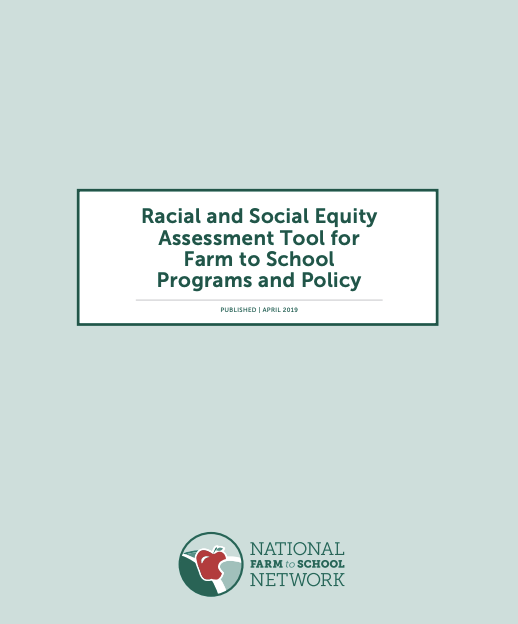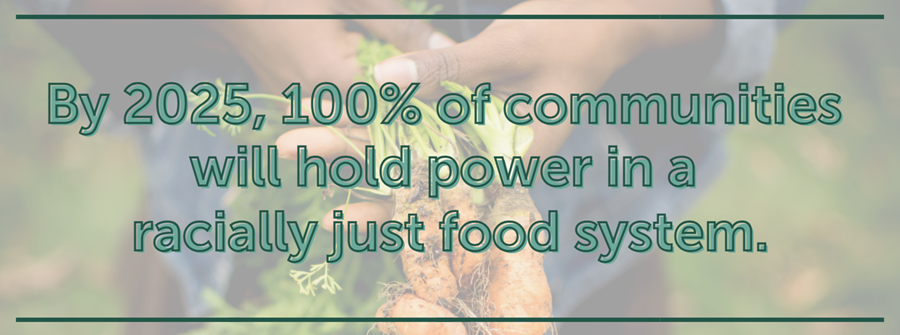The U.S. National Farm to School Network (NFSN) has issued a call to action: by 2025, 100% of communities will hold power in a racially just food system.
We can all learn from some of the ways NFSN has shared they are working toward this — by looking at how they’re advocating for values-based policies, how they’re supporting Black and Indigenous-led efforts through their COVID-19 Relief Funds, and by using their racial equity tool.
The Racial and Social Equity Tool has been designed not only for the NFSN, but for any farm to school stakeholder, so they can:
 Increase capacity to identify racial and social inequities embedded within organizational, local, state, and national programming and policy advocacy initiatives,
Increase capacity to identify racial and social inequities embedded within organizational, local, state, and national programming and policy advocacy initiatives,
- Support decision making processes which maximize opportunities for advancing racial and social equity,
- Create a community of practice to empower us to take action within our sphere of influence, and,
- Embrace our collective power to address the systemic changes needed for social transformation within the farm to school movement.
The Farm to School movement, and school food programs in general, can—and must—play an important role in this work.
“What will it take to achieve our vision of a racially just food system, to realize not some but all of the values behind farm to school?” asks Helen Dombali, the NFSN’s Executive Director. “[T]he answer we’ve come to is shifting power. We need community-based food systems – centered in racial equity and relationships – that redistribute the way power is currently held, in order to achieve food justice.”





